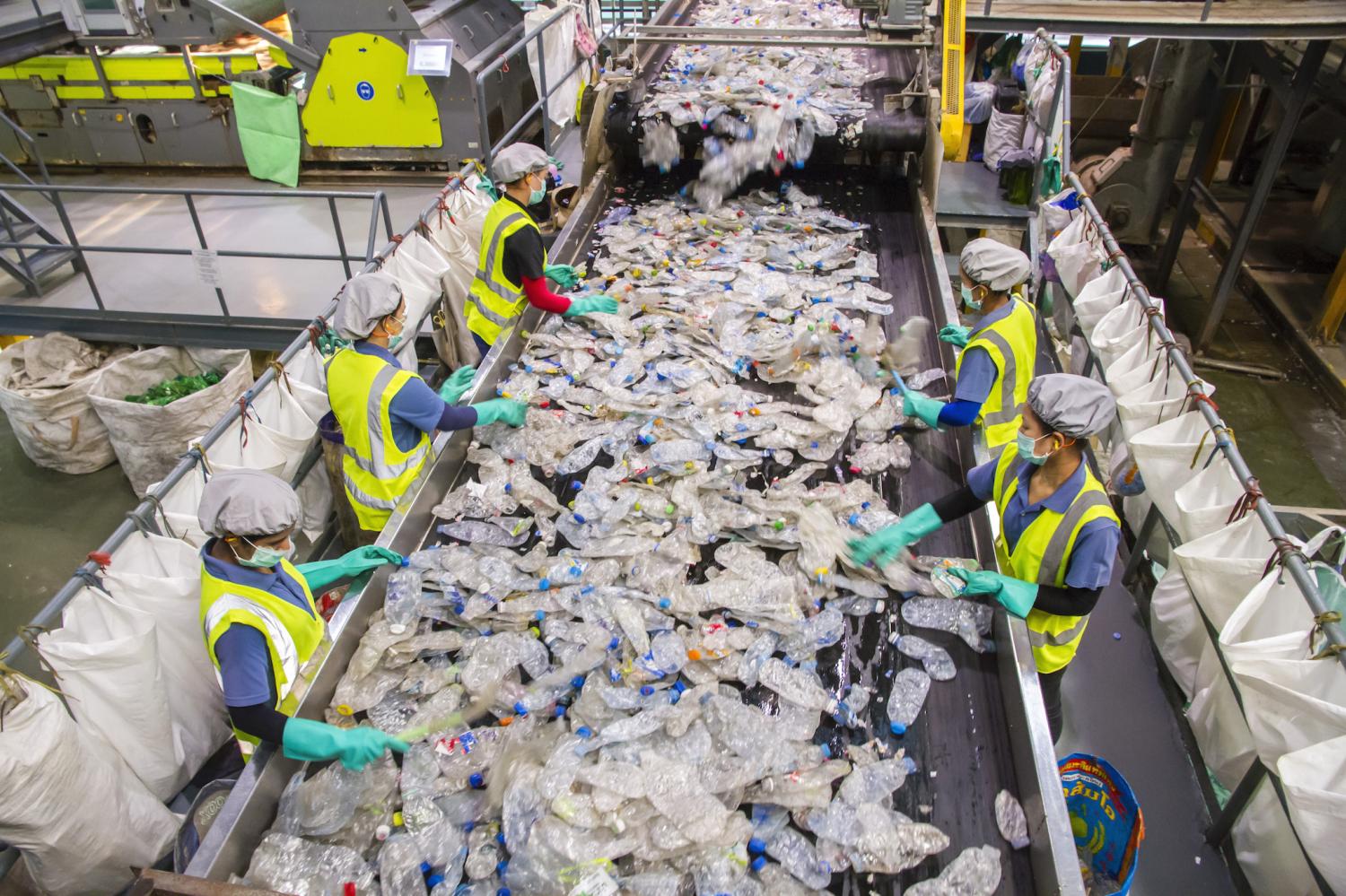
In five years of operation, the Indorama Ventures Plc (IVL) plastic recycling factory in Nakhon Pathom recycled a total of 1.65 billion PET bottles, helping reduce Thailand's crude oil consumption by 530,000 barrels and cutting carbon emissions by as much as 118 million kilogrammes.
"As the world's leading PET producer, we entered the recycling business in 2011 by acquiring Wellman International, a European PET recycler and a leader in short synthetic polyester fibre as well as recycled plastic, in order to accept the challenge of promoting the circular economy," said Richard Jones, senior vice-president and head of sustainability at IVL. "At the moment, we operate 11 recycling facilities around the world."
The facility in Nakhon Pathom covers an area of 90 rai and turns post-consumer PET bottles into recycled PET resins and fibres (rPET). It has an annual capacity of 120,000 tonnes of polyester fibre and 29,000 tonnes of rPET.
"Every day, over 100 tonnes of used PET bottles, which are already compressed in huge bales and have been inspected for quality, are processed at this factory," said Anivesh Tewari, plant head of Indorama Polyester Industries.
"Old plastic bottles are sorted, stripped of foreign materials, cleaned several times to remove any contamination and made into small chips."
IVL customers have been consistently demanding more packaging materials be produced from recycled plastics due to concerns over rising plastic consumption. There has been a global effort to promote the use of recycled plastic packaging.
Germany has a plastic bottle recycling rate of 94%, the highest among EU member states. In Asia, Japan is at the top of the list at 83%.
The company has set a goal of recycling 750,000 tonnes of PET by 2025, in line with the target set by the European Commission to increase the share of rPET usage to 25% of all plastic pellets used in the production of food and drink containers by 2025.
"PET is not for one-time use because it can be endlessly recycled for multiple applications through efficient recycling processes," Mr Jones said.
"The more recycling of PET, the less demand for newly produced plastic pellets."